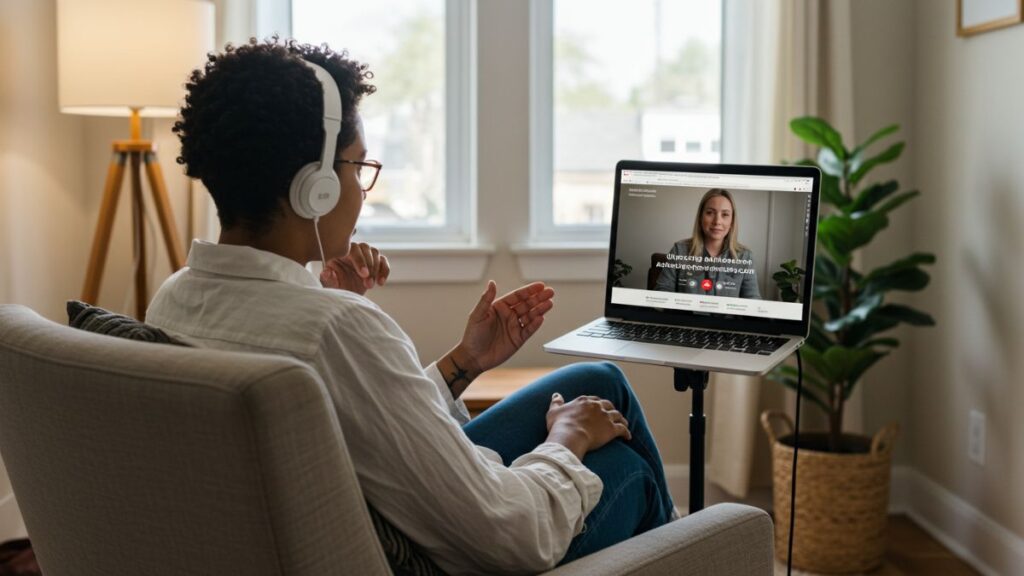At conversationswithbianca com, the exploration of what it truly means to be authentic takes center stage. It’s not just about being true to oneself; it’s about embracing vulnerability, celebrating individuality, and fostering real relationships in an increasingly digital landscape. Let’s dive into this rich topic together as we unpack the essence of living authentically and discover how it can transform our lives for the better.
What does it mean to be authentic?
Being authentic means being true to yourself. It’s about embracing who you really are, without the masks society often encourages us to wear.
Authenticity involves having the courage to express your thoughts and feelings openly. It requires vulnerability, which can feel daunting but is ultimately liberating.
When you’re authentic, your actions align with your values. You don’t bend to external pressures; instead, you stand firm in your beliefs and desires.
It also means accepting imperfections. No one is perfect, and authenticity thrives on honesty about our flaws and quirks.
Living authentically invites deeper connections with others too. When you show up as your true self, it opens the door for genuine relationships based on trust and understanding.
The importance of authenticity in today’s society
Authenticity has become a vital currency in today’s fast-paced world. With social media dominating our lives, the pressure to present an idealized version of ourselves is stronger than ever.
People crave real connections and genuine interactions. When we embrace authenticity, we allow others to see us as we are—flaws and all. This openness fosters trust and builds deeper relationships.
Moreover, being true to oneself encourages self-acceptance. Embracing who you really are can lead to a more fulfilling life experience. It allows for growth and exploration without the constraints of societal expectations.
In professional settings, authenticity can set individuals apart. Those who confidently express their thoughts contribute uniquely to discussions and inspire innovation within teams.
Living authentically not only enriches personal experiences but also enhances community bonds by creating spaces where everyone feels valued for their true selves.
Tips for embracing authenticity in your own life
Start small. Identify the areas in your life where you feel pressure to conform. It could be at work, within friendships, or even on social media.
Practice self-reflection. Take time each week to journal or meditate on your thoughts and feelings. Understanding yourself better is key to living authentically.
Surround yourself with supportive people. Engage with those who celebrate your true self rather than suppress it. Their encouragement can help boost your confidence.
Be honest in conversationswithbianca com. Speak your mind respectfully and share your opinions openly without fear of judgment.
Set boundaries that reflect who you are. It’s okay to say no when something doesn’t resonate with you or aligns with your values.
Embrace imperfections as part of being human. Authenticity isn’t about being flawless; it’s about showing up as you genuinely are—messy moments included!
The impact of living authentically on mental health and relationships
Living authentically can be a game-changer for mental health. When you embrace who you truly are, stress and anxiety often diminish. You stop worrying about others’ opinions, freeing your mind to focus on personal growth.
Authenticity fosters deeper connections in relationships too. By being genuine, you attract like-minded individuals who value honesty. These bonds create a support network where vulnerability is welcomed.
Moreover, authentic living encourages self-acceptance. As you align with your true self, feelings of isolation may fade away. This shift allows for healthier interactions with others and promotes emotional resilience.
Embracing authenticity also cultivates empathy. Understanding yourself better helps you connect with the experiences of those around you, enriching relationships further and creating a sense of community.
The ripple effect is profound—your well-being improves while inspiring others to live genuinely as well.
Conclusion:
Authenticity resonates deeply in our lives. It shapes how we connect with ourselves and those around us.
Living authentically allows for genuine experiences conversationswithbianca com. This openness fosters trust in relationships, creating a safe space for vulnerability.
Engaging with authenticity can lead to unexpected growth. When you embrace who you truly are, the world responds positively.
This journey is not always easy but is profoundly rewarding. Each step taken towards living authentically brings clarity and purpose.
By prioritizing authenticity, we cultivate richer interactions and greater self-awareness. It’s about reclaiming your narrative amidst external pressures.
FAQ’S
What does it mean to be authentic?
Being authentic means being true to yourself. It’s about aligning your actions with your values and beliefs, free from societal pressures or expectations.
Why is authenticity important in today’s society?
In an age dominated by social media and curated images, authenticity fosters trust. It helps build real connections and encourages vulnerability among individuals.
How can I embrace authenticity in my daily life?
Start small by practicing self-reflection. Identify what truly matters to you and align your decisions accordingly. Surround yourself with people who support your true self.


